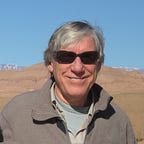That Which Does not kill You Makes You Stronger
The aphorism “That which does not kill you makes you stronger”, is a quote attributed to Friedrich Nietzsche. I hope to persuade you that this aphorisms, stated in this absolute, unqualified format, raises three questions which challenge its veracity.
1. Does a life threatening adversity always make you stronger?
2. Does adversity make you stronger or just cause determined people to refocus their lives?
3. Does adversity have to rise to the level of life threatening before it makes you stronger?
1. Clearly, the converse of Nietzsche’s aphorism is deadly accurate. To say that that which kills you makes you weaker, is an understatement. However, if an event or encounter does not kill you, does it always make you stronger?
Countless people who face serious adversity never recover physically or mentally. Consider the soldiers who have PTSD after being in military conflict. In what sense are they stronger? Many resort to drugs, alcohol or worse, suicide in order to escape their anguish. Consider those who are physically disabled from a serious accident, self determined or otherwise. How many are stronger after the accident?
In short, it is a gross oversimplification to suggest, “That which does not kill you makes you stronger.”
2. Unquestionably, adversity can change your life. Some who undergo debilitating accidents, for example, might already have been very strong and been able to refocus their lives in unbelievable ways. These are exceptional people . For example, Rick Hansen, the “Man in Motion”, with whom I had the privilege of shearing a meal at a conference where he was a guest speaker, is unquestionably strong after being rendered a paraplegic in a tragic traffic accident. He has made a great contribution to spinal cord research and inspired many who suffered a similar fate. Is he stronger than he would have been? We have no way of determining this. He clearly had the personality to decide to rise above his circumstances rather than wallow in self pity and despair. Helen Keller and Alvin Law also come to mind and there are countless others.
3. If Nietzsche meant to Imply that you are only strengthened by what nearly kills you, we should all be engaging in death defying activities. There will always be individuals who engage in such activities. They are often the ones who discover new worlds, break world speed records and explore space, to mention a few. Whether these are great achievements for humanity can be debated. Nevertheless, for such individuals, thrill seekers and risk takers alike, the risk is worth the potential reward. It is doubtful, however, that we could build an entire stable society around a population dedicated full time to engaging in life threatening activity.
On the surface then, Nietzsche’s aphorism does not stand up too well. However, if we permit ourselves a more liberal or less literal interpretation, it might well coincide with many common quips: If you fall off your horse, get up and brush yourself off, and get back on. In other words, one could argue that adversity in the broadest sense is effectively the only way to get “stronger”, especially if you mean by that becoming more proficient or even more determined. Becoming proficient at any skill requires endeavour and for many endeavour in itself is adversity. Someone once said to the famous pianist, Vladimir Horowitz. “ I which I could play as well as you do “. He responded, “If you practice for eight hours per day for 40 years you probably could”. How many of us are willing to put out that kind of effort? That is why many of us do not get stronger. However, was Nietzsche implying that the “that” in “that which does not kill you makes you stronger” has to be life threatening before it makes you stronger. If that is the case then one can surely rightfully and vehemently disagree.
If we are fortunate enough, as most are, not to experience a life threatening “that” we will need to embrace the adversity of plain hard work, and in that too we must show determination and persistence.
In these days of COVID 19, we are constantly reminded that getting a vaccine or mild case of the disease will trigger the immune system to make us strong enough to resist the disease in the future. Likewise, physical fitness exercise makes us stronger. Inactivity will bring serious adverse effects. In short, there are many things that don’t kill us that make us stronger.
Let’s revise Nietzsche’s phrase. Measured adversity, whether self imposed or otherwise, is one of the best ways to get stronger both physically and mentally. In other words, as Thomas Edison put it, genius is 1% inspiration and 99% perspiration. In short, the “that” in Nietzsche’s phrase in many cases might simply be hard work.
